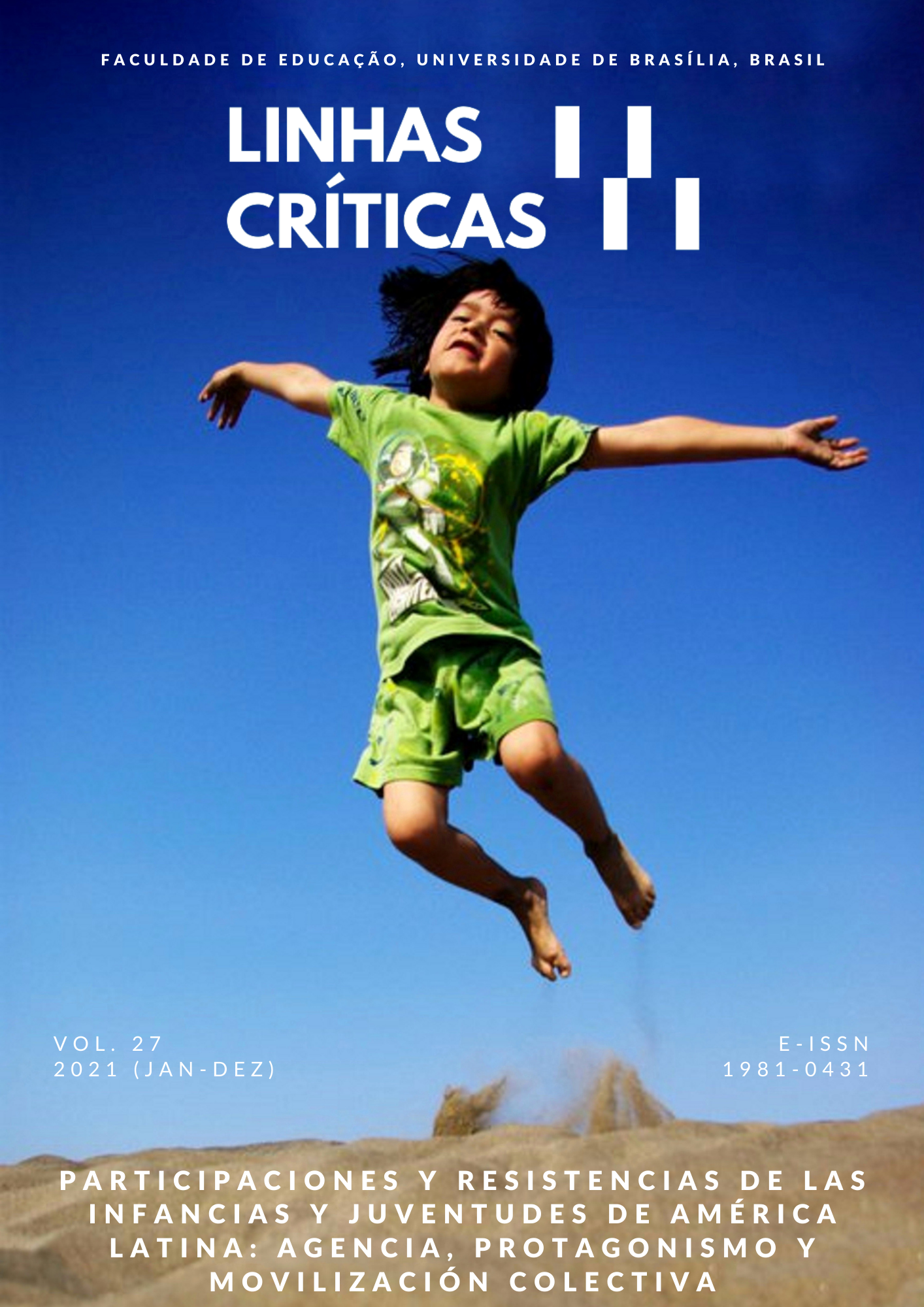Intentionality and responsibility
the Dewey experience for inclusive education
DOI:
https://doi.org/10.26512/lc.v27.2021.36898Keywords:
Inclusive education, Experience, Teacher trainingAbstract
From the point of view of teacher training, the concept of experience in Dewey is configured as an investigative act in which researching significant learning situations expands professional skills. When questioning the teaching engagement with a view to the development of all and the construction of a more egalitarian society, this article demonstrates that the concept is close to inclusive education when there is social concern. With the bibliographic survey of Dewey's work, a reading for inclusive education is proposed, condensing the pillars of teaching action in the words intentionality and responsibility.
Downloads
References
Dewey, J. (1948). La experiencia y la naturaleza. Fondo de Cultura Económica.
Dewey, J. (1952). La busca de la certeza: um estudio de la relación entre el conocimiento y la acción. Fondo de cultura económica.
Dewey, J. (1959). Vida e Educação: I – A criança e o programa. II – Interesse e Esforço. Cia Editora Nacional.
Dewey, J. (1967). Experiencia y Educación. Losada.
Dewey, J. (1970). Liberalismo, liberdade e cultura. EDUSP.
Dewey, J. (1991). The public and its problems. Ohio University Press.
Dewey, J. (2002). A Escola e a Sociedade. A Criança e o Currículo. Relógio d’água.
Dewey, J. (2007). Democracia e Educação. Platano Editora.
Dewey, J. (2008). Democracia cooperativa: escritos políticos escolhidos de John Dewey 1927-1939. EDIPUCRS.
Dewey, J. (2010). Human nature and conduct: an introduction to social psychology. Nabu Press.
Dewey, J. (2017). How we think. Andesite Press.
Galter, M. I., & Favoreto, A. (2020). John Dewey: um clássico da educação para a democracia. Linhas Críticas, 26, 1–15. https://periodicos.unb.br/index.php/linhascriticas/article/view/28281/27067
Malaguzzi, L. (1999). História, ideias e filosofia básica. Em C. Edwards, L. Gandini & G. Forman. As cem linguagens da criança: a abordagem de Reggio Emilia na educação da primeira infância. (pp. 59-104). Artes Médicas Sul.
Malaguzzi, L. (2001). La educación infantil en Reggio Emilia. Octaedro/Rosa Sensat.
Pinazza, M. A. (2014). Formação de profissionais de educação infantil em contextos integrados: informes de uma investigação-ação. [Tese Livre de docência, Universidade de São Paulo]. Repositório Institucional da FEUSP. http://doi.org/10.11606/T.48.2014.tde-01122014-155847
Rinaldi, C. (2006). In dialogue with Reggio Emilia: Listening, researching and learning. Routledge.
Additional Files
Published
How to Cite
Issue
Section
License
Copyright (c) 2021 Mariane Falco

This work is licensed under a Creative Commons Attribution 4.0 International License.
Authors who publish in this journal agree to the following terms:
-Authors maintains the copyright and grants the journal the right of first publication, the work being simultaneously licensed under the Creative Commons Attribution License which allows the sharing of the work with recognition of the authorship of the work and initial publication in this journal.
- Authors are authorized to enter into additional contracts separately, for non-exclusive distribution of the version of the work published in this journal (eg publish in institutional repository or as a book chapter), with acknowledgment of authorship and initial publication in this journal.
-Authorers are allowed and encouraged to publish and distribute their work online (eg in institutional repositories or on their personal page) at any point before or during the editorial process, as this can generate productive changes as well as increase the impact and the citation of published work (See The Effect of Free Access).



